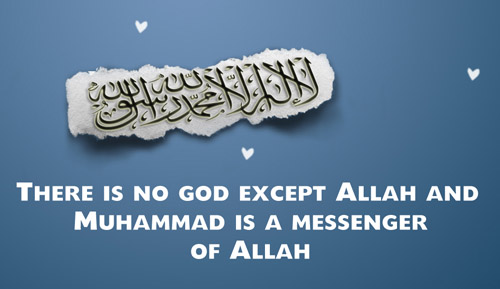It’s true, isn’t it? You can fool a lot of people for a lot of the time. You can even fool yourself for a while. But Allah cannot be fooled. No matter how much we pretend, we cannot deceive the One Who created us. Allah knows every leaf that falls from every tree and He counts every hair on our head.
Others may see us as ever so pious, so kind, so caring. “What a good Muslim,” they say. But we know the truth.
We know the jealousy that drives us on, or the laziness that prevents us from doing what we know to be right. We know the backbiting and the bad thoughts.
In the holy Qur’an, we read:
Allah Almighty knows all this too, and more, and yet He still wishes well for us, still calls us towards Him.
{Say: I seek refuge with the Lord and Cherisher of humankind, the King (or Ruler) of humankind, the God of humankind, from the mischief of the Whisperer (of evil), who withdraws (after his whisper), the same who whispers into the hearts of humankind, among Jinn and among humankind.} (An-Nas 114:1-6)
Perhaps it is not all that surprising that this is the very last Surah of the Qur’an. After we have listened to the entire Revelation to humankind, with a complete history of Islam since the beginning of time, and words of encouragement, advice, and warning for every situation in life, Almighty Allah concludes His Book with a warning.
He warns us to beware of the Whisperer, the Devil, the shaytan. Listening to him can bring the whole house falling down upon us. Following his whispers can destroy all the good we do.
Satan Whispers Evil
Allah calls us onward towards Him and upward as we strive in virtue and goodness. He is forever forgiving us and pardoning our sins, giving us chance upon chance to become better Muslims.
The shaytan, on the other hand, always does the opposite. He tells us we are rubbish, and that we will never be good Muslims because we are bad.
He makes us depressed, when we have nothing to be depressed about. He makes us doubt even the good we do, making us think after the event that we did it for selfish reasons.
And it is precisely the way in which he does it that makes it so subtle. He “whispers” to us when we are alone. He whispers to us, urging us to do evil.
He whispers to us to stay just five minutes more in bed, so that we go off to sleep again and miss the Dawn Prayer. He whispers to us to doubt our friends or to lie to our family.
Tackling an enemy we can see is much easier. We know what he looks like and we can find ways of combating him. Like soldiers, we can prepare to fight an enemy we can see.
He whispers to us to talk to others of the opposite sex, since nothing will come of it, it is just a harmless conversation. He whispers to us to cheat and to steal. The shaytan is truly our very worst enemy.
Taking on an enemy we can’t see is much more difficult. And the shaytan is so clever. He uses the very things that are our weakest points.
If Allah has gifted us with good looks, we feel pride and vanity about how good looking we are and we use those good looks for bad purposes, attracting others to think or even do bad things. If we have been given the gift of intelligence, we use it to trumpet how clever we are. If we are strong, we use that strength to harm others.
Try just for once!
The shaytan not only whispers to us, urging us to be slow in doing good and to be quick to do wrong, but he also tells lies.
He tells us we are no good, that we will never achieve the lofty goals of Islam, so why bother at all. He tells us that we are ugly, that we are fat, that we are stupid, that no one likes us. He makes us question every good thing we do.
We seem to be comforted when friends tell us we can stay out just that bit longer, even though parents have told us to be back at a certain time and are sure to be worrying when we don’t arrive. They tell us to mix with the wrong type of people, to listen to the worst kind of music, or to try things “just for once,” even though they are haram.
And there is more. He not only secretly whispers directly into our hearts, but he also uses others to do the whispering. Our best friends tempt us to do wrong. It doesn’t seem too bad coming from them, when they tell us to stay in the shopping mall for just half an hour more and catch the Afternoon Prayer later on.
The shaytan really is our very worst enemy. He even lies to non-Muslims, telling them that Islam is the religion of evil and violence.
Take refuge in Allah
But let us not forget that Allah is in control of all things. It is when we forget this that we become prone to the whisperings of the shaytan. Allah created the heavens and the earth and everything that is in between them. There is nothing that can resist His power.
Let us never forget, though, that as long as we entrust all that we do to Allah’s power and protection, there is nothing that can harm us.
As Muslims, we begin our conversations “in the name of Allah, Most Merciful, Most Compassionate.” We begin all our endeavors “if Allah wills it to be so.” And when we feel the need for help, we cry out “I take refuge in Allah from the accursed shaytan.”
Islam is so sensible and practical. Allah presents us with no difficulty that we don’t have the resources to overcome. He tests no soul beyond its capacity. Being aware that the shaytan is no more than a talker, a whisperer, is halfway to defeating him.
By being faithful to prayer and to the traditions of our beloved Prophet (peace and blessings be upon him), we learn to overcome the whispering. By associating with good friends and by listening to the advice of wise people, we become strong in combating our own weakness.
Don’t forget that in Ramadan we learn to subdue the body and subject it to our will. The body cannot control us. Connecting with Allah is the way to become truly strong. And when we are close to Allah, there is nothing that can overcome us. Not even our very worst enemy.
References
This article was published in June 2007










